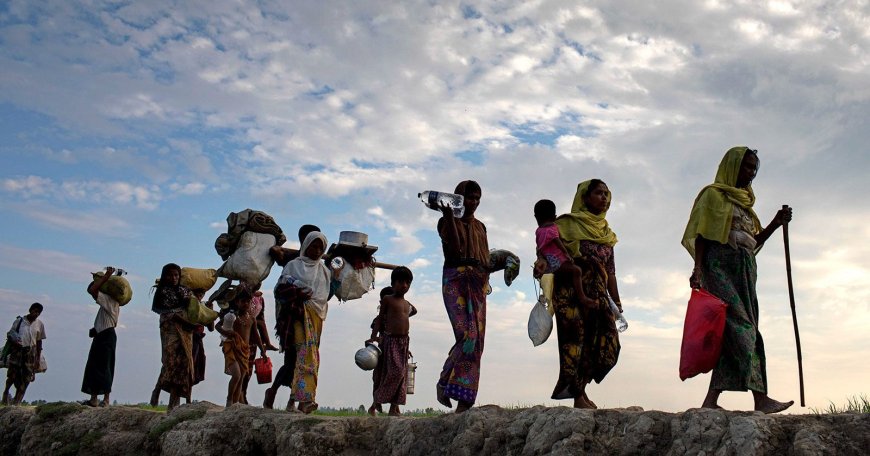Worsening Violence in Myanmar Pushes Rohingya Refugees to Flee Once Again
Thousands of Rohingya forced into conflict by Myanmar's military continue to seek refuge in overcrowded camps in Bangladesh.

Once more escaping Myanmar in great numbers, Rohingya refugees are driven thousands more into already-overcrowded refugee camps in Bangladesh as increasing violence and forced enlistment into Myanmar's military cause retaliatory attacks against civilians.
Recently making the dangerous trip back to Bangladesh after being forcibly drafted into a battle he wanted none of, Syed, a 23-year-old Rohingya refugee whose name has been altered to protect his identity, Having left Myanmar already, Syed was once more trapped in the crossfire of the nation's terrible internal strife. Along with many others, his horrific ordeal clarifies the worsening circumstances for the Rohingya minority, who still live as stateless people under persecution in Myanmar.
"I observed deaths and hunger among people. After returning to the Cox's Bazar refugee camp, where he had resided for seven years, Syed told AFP, everyone was simply trying to survive. Syed and other Rohingya recruits, forced into work for Myanmar's military, were assigned porter duties, build trenches, and supply gathering tasks for troops opposing advancing rebel forces. Like many others, he was assigned to fight against the Arakan Army, an ethnic insurgent group striving for autonomy in Myanmar's Rakhine State, under armed group conscription.
The Rohingya have been positioned in the middle of an unrelated conflict by this perilous recruitment. The junta-run military of Myanmar has ramped up its operations against ethnic rebels such as the Arakan Army, which has resulted in bloody retaliation. Civilians have been caught in the crossfire as the violence gets more intense, especially the Rohingya whose vulnerable posture is being taken advantage of. Human rights organizations and analysts estimate that at least 2,000 Rohingya have been forcefully recruited from Bangladeshi refugee camps this year, many more from within Myanmar itself.
Denying involvement in forced recruitment are both the Arakan Rohingya Salvation Army (ARSA) and the Rohingya Solidarity Organization (RSO), armed groups functioning inside the camps. Though the Rohingya endure the most of the violence, the United Nations and other human rights organizations have recorded violations on both sides. Allegations of atrocities against the Rohingya have been leveled on the military of Myanmar and the Arakan Army, further aggravating their situation.
In one of the worst events, last month's drone and mortar bombardment close to the Bangladesh border claimed the lives of about 100 Rohingya men, women, and children according to watchdog group Fortify Rights. Although the Arakan Army denies responsibility, eyewitnesses like 22-year-old Mohammad Johar relate graphic images of bloodshed. Among those slain in the attack was Johar's brother-in-law, who detailed seeing bodies scattered along the riverbed as they escaped Maungdaw, a town close to the border.
In that regard, the Arakan Army is more potent than the military of Myanmar. Though they both bomb one another, the Muslims are the ones dying, Johar said with regret.
Already straining to house about a million Rohingya refugees who escaped a violent military crackdown in 2017, Bangladesh is collapsing under the weight of these fresh arrivals. Touhid Hossain, the temporary foreign minister for the nation, recently said that despite the rising number of Rohingya escaping increasing violence in Myanmar, Bangladesh just cannot take any more refugees. Reflecting the sad reality confronting the refugees and their host nation, Hossain said, "It's beyond our capacity to provide shelter to anyone else."













































